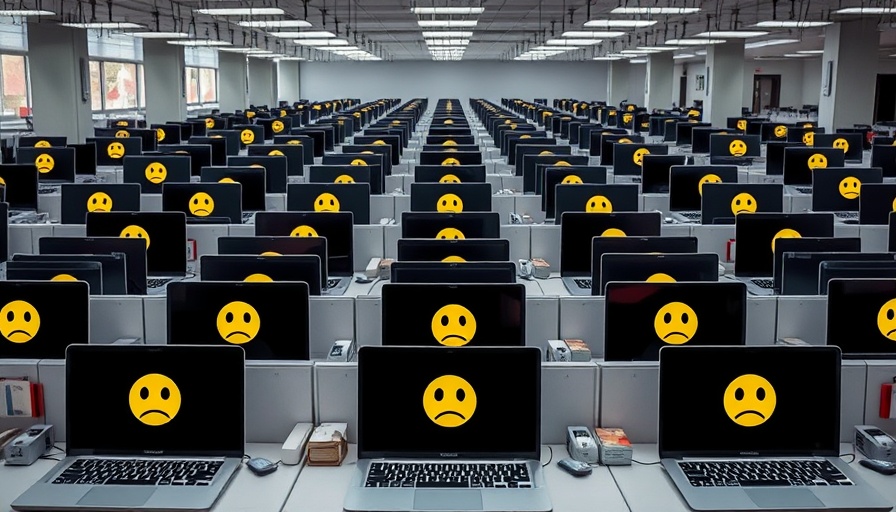
Why Mental Health Matters for Young Professionals
In today’s fast-paced work environment, the importance of mental health cannot be overstated, particularly for young professionals ages 18-29 who are entering the workforce in droves. These individuals prioritize their mental well-being and seek employers who recognize and support their mental health needs. By putting mental health front and center, companies can create thriving workplaces that not only attract young talent but also foster loyalty and productivity.
The Rising Importance of a Supportive Workplace
As more young employees voice their need for supportive work environments, employers must adapt. They are beginning to understand that cultivating a culture that emphasizes mental health can significantly enhance employee satisfaction and retention. In fact, research indicates that workplaces that prioritize mental health see a decrease in absenteeism and an increase in job performance. This is particularly relevant for employees with disabilities, who may face additional challenges in traditional workplace environments.
Research-Based Strategies for Mental Health Support
The upcoming webinar, "Prioritizing Mental Health: Supporting Young Professionals with Disabilities", offers insightful strategies for fostering a mentally healthy workplace. Participants will gain tools to implement proven practices aimed at enhancing the overall work environment. Key strategies to be discussed include creating flexible work arrangements, providing mental health resources, and establishing supportive peer networks. Each of these elements plays a pivotal role in supporting the unique needs of young professionals, especially those with disabilities.
Why Inclusion Matters
Inclusion is crucial for mentally healthy workplaces. Young professionals who feel included and supported are more likely to thrive and contribute positively to their teams. Offering tailored career pathways for individuals with disabilities not only promotes diversity but also enriches the workplace environment. Research shows that diverse teams foster creativity and innovation, leading to better problem-solving and enhanced company performance.
Practical Tips for Employers
Employers can take actionable steps right away to create more inclusive workplaces. Here are some practical tips:
- Foster Open Communication: Encourage open dialogue about mental health. This could involve regular check-ins or anonymous feedback platforms where employees feel free to express their challenges.
- Provide Resources: Ensure that employees have access to mental health resources, including counseling services, mental health days, and meditation sessions.
- Implement Flexible Work Policies: Flexibility in work hours and locations can relieve stress and promote a healthier work-life balance, which is paramount for mental well-being.
- Develop Training Programs: Train staff to recognize mental health issues and provide them with the tools necessary to support their co-workers.
Looking Ahead: Future Trends in Workplace Mental Health
As we look towards the future, workplace mental health will continue to evolve. Employers who prioritize mental well-being within their organizational cultures will lead the way in drawing and retaining talented individuals. Companies that adopt these progressive strategies are more likely to cultivate loyal teams that are equipped to drive innovation and success.
Take Action and Support Mental Health
To support mental well-being in the workplace, it’s essential for both employers and employees to engage actively in creating a supportive environment. Attending events like the "Prioritizing Mental Health" webinar can be a starting point for individuals and organizations committed to enhancing workplace culture. By taking proactive steps today, we can shape a healthier work environment for everyone, especially our younger professionals who embody the future of work.
 Add Row
Add Row  Add
Add 




Write A Comment